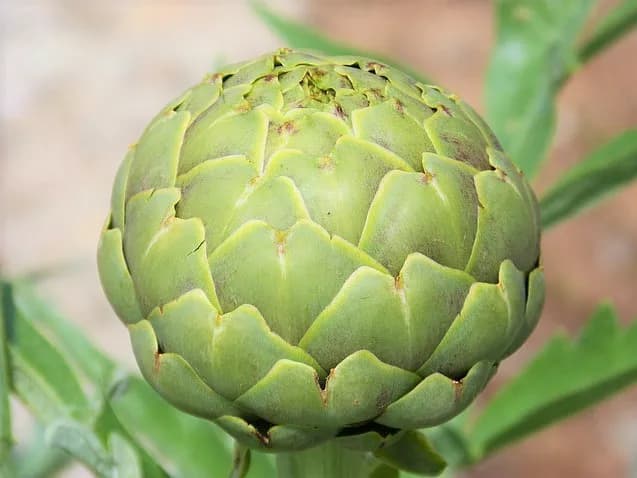The globe artichoke, commonly known as the artichoke, (Cynara cardunculus var. scolymus) is a variety of a species of thistle cultivated as food. The edible portion of the plant consists of the flower buds before the flowers come into bloom. The flowers develop in a large head from an edible bud with triangular scales.
Artichokes usually have its thorns removed and are boiled or steamed. When eaten, the leaves are often removed one at a time and prepared with hollandaise, vinegar, butter, mayonnaise, aioli, lemon juice, or other sauces. The innermost portion of the artichoke called the heart can be cooked in oil and prepared in many dishes. This ancient treat possesses many health benefits, which are guilt-free.
Here are seven health benefits of artichokes.
1. Artichokes can help people manage their type 2 diabetes.
Research published in The American Journal of Clinical Nutrition studied the fructans found in artichokes. Fructan is a type of soluble fiber that can help increase the number of probiotic bacteria in the digestive tract while slowing the blood sugar spikes. The study found that the fructans found in artichokes did not spike the blood glucose levels and insulin levels when compared to fructose.
2. Artichokes can help you clean your bowels.
Artichokes are a rich source of dietary fiber. The insoluble fiber enables smooth passage stool in the digestive system. However, individuals with bowel sensitivities or disorders may want to avoid them. Chronic constipation can lead to several complications, such as fecal impaction, rectal bleeding, and bowel incontinence.
3. Artichokes may help you reduce your weight.
One pound of artichokes has only 60 calories. The fiber content can help you feel full longer while not providing high amounts of calories. This is useful for people on weight loss diets.
4. Artichokes can help boost heart health.
Artichokes have small but significant amounts of a wide variety of vitamins and minerals including calcium, iron, phosphorus, and vitamins. Research published in the Journal of Phytomedicine found that artichoke leaf extract consumption could help decrease the total cholesterol levels are 12 weeks, thus reducing the risk of cardiovascular diseases.
5. Artichokes may be a potent anti-cancer food.
Artichokes rank number 7 on the USDA’s list of top 20 antioxidant-rich foods containing polyphenols, quercetin, and rutin. Antioxidants have been strongly linked to cancer prevention by reducing free radicals in the body. Free radicals are highly reactive atoms, ions, or molecules, that steal electrons from other molecules like fats, proteins, cell membranes, and DNA, thus altering the fundamental structure of the affected molecule through a process called oxidation. Long-term oxidation can accumulate and lead to cancers and other degenerative diseases.
Artichoke are also a rich source of vitamin C. Research published in the journal of Integrative Cancer Therapies found that vitamin C can help ameliorate the harmful side effects of free radical damage to normal cells in cancer therapy, such as mucositis and fibrosis, and to reduce the recurrence of breast cancer.
6. Artichokes may promote efficient liver and gallbladder function.
Artichokes may act as a cholagogue to enhance the production of bile. Bile helps the digestion of lipids in the small intestine. Without bile, fats are indigestible and are excreted in the feces leading to a condition called steatorrhea. Steatorrhea can result in deficiencies in essential fatty acids and fat-soluble vitamins.
Also, artichokes contain two antioxidants, cynarine and silymarin, that can help improve liver health by reducing the presence of toxins in the body.
7. Artichokes may contribute to improving your mental health.
Artichokes contain compounds called anthocyanins, pigment molecules that may be linked to proper cognitive function. Anthocyanins may guard against ailments of the brain and mental function that often come with age. Fresh artichoke is also an excellent source of folate, providing about 68 µg per 100 g (17% of recommended daily allowance). Folate is essential for preserving memory, emotional health, and other brain diseases, helping prevent Alzheimer’s disease, depression, and Age-Related Macular Degeneration.
Related Articles
Test Your Knowledge
Asked by users
Related Centers
Related Specialties
Related Physicians
Related Procedures
Related Resources
Join DoveHubs
and connect with fellow professionals


0 Comments
Please log in to post a comment.